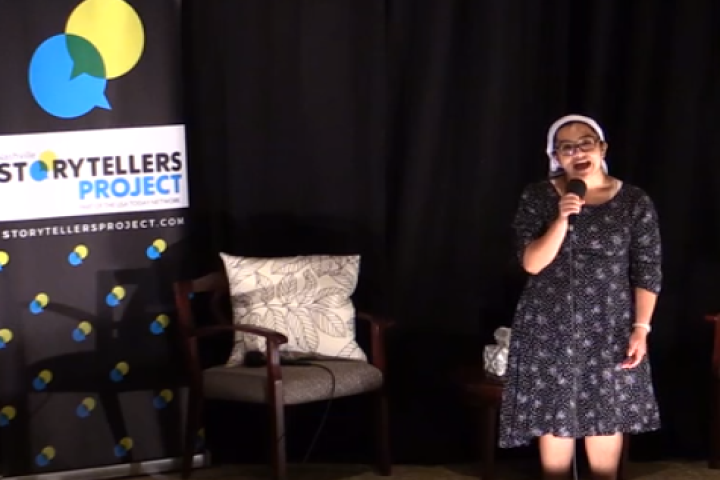Tennessee teen Cicela Hernandez has been on both sides of bullying.


Tennessee teen Cicela Hernandez has been on both sides of bullying.
After relentless teasing about the way she dressed, hair on her leg, and her family’s financials, Hernandez turned the tables to torment other students to vent her frustrations. She eventually began to lash out in class, and to harm herself in a destructive cycle that also involved sexual abuse in a home she shared with her mother and another family member.
It wasn’t until a sixth-grade teacher stopped to talk to Hernandez about her troubles that she started on a path to recovery that ultimately led to graduation and a scholarship to attend college.
“I really couldn’t control much of the anger I felt inside,” Hernandez told The Tennessean. “He was the first person to ask me, ‘What’s wrong?’”
Hernandez’s story could have ended much differently, and it illustrates the critical role “upstanders” play in the lives of the roughly 21 percent of teenage students who experience bullying in U.S. schools each year, according to the news site.
“If they don’t know how to access help or they feel like nobody cares about them, that’s the worst-case scenario,” said Lauren Dickson, a social worker for STARS, a Nashville nonprofit focused on bullying, substance abuse and violence among youth. “In those situations, problems just get bigger. They can fester.”
Brought to their ultimate conclusion, they can also lead to the types of disgruntled student shootings plaguing schools across the country. And preventing a tragic outcome often rests on the adults in students’ lives, and resources available to help.
Numerous hotlines, available both in person and through text, offer counseling, from the Tennessee statewide crisis line, to the National Suicide Prevention, to the National Sexual Assault Hotline. Schools in Tennessee and numerous other states are also working with anti-bullying apps for smartphones to streamline the reporting process.
But Rodger Dinwiddle, CEO of STARS, contends it’s the adults in students’ lives that can make the biggest difference.
“Dinwiddle talks about the ‘web of five’ confidants for kids,” The Tennessean reports. “This is a group of at least five adults – a teacher, a counselor, a coach, someone in a faith community, an aunt, a grandparent, a mentor – whom a child trusts enough to talk to about any issues they may face at home and school.”
“It’s really important for kids to feel safe with somebody in that school building that they can report to,” he said. “So that if anything happens to them, there is someone there to catch them.”
Dinwiddle explained it’s about developing habits of looking for signs of trouble to intervene before it’s too late. It’s about creating upstanders – rather than bystanders – to bullying and other issues through a new tradition of kindness and compassion.
James Davison Hunter, founder of the Institute of Advanced Studies in Culture, pointed to the importance of establishing those habits and traditions to prompt people to take action when the time is right.
“What empathy we feel may help us understand someone else’s needs, and even feel the desire to help that person,” Hunter wrote in “The Tragedy of Moral Education in America.” “But without embedded habits and moral traditions, empathy does not tell us what to do, nor when, nor how.”
In Tennessee, more than 180 schools have signed up with the anonymous reporting app STOPit to allow students to share their concerns about bullying classmates or other dangers.
“Students are digital natives and many choose to communicate, first, through digital means rather than face-to-face conversations,” Robb Killen, Maury County Public Schools’ supervisor of counseling, said on the STOPit website. “This program meets them where they are … they can, more easily, stand up for each other and create a culture of safety, caring, and respect.”